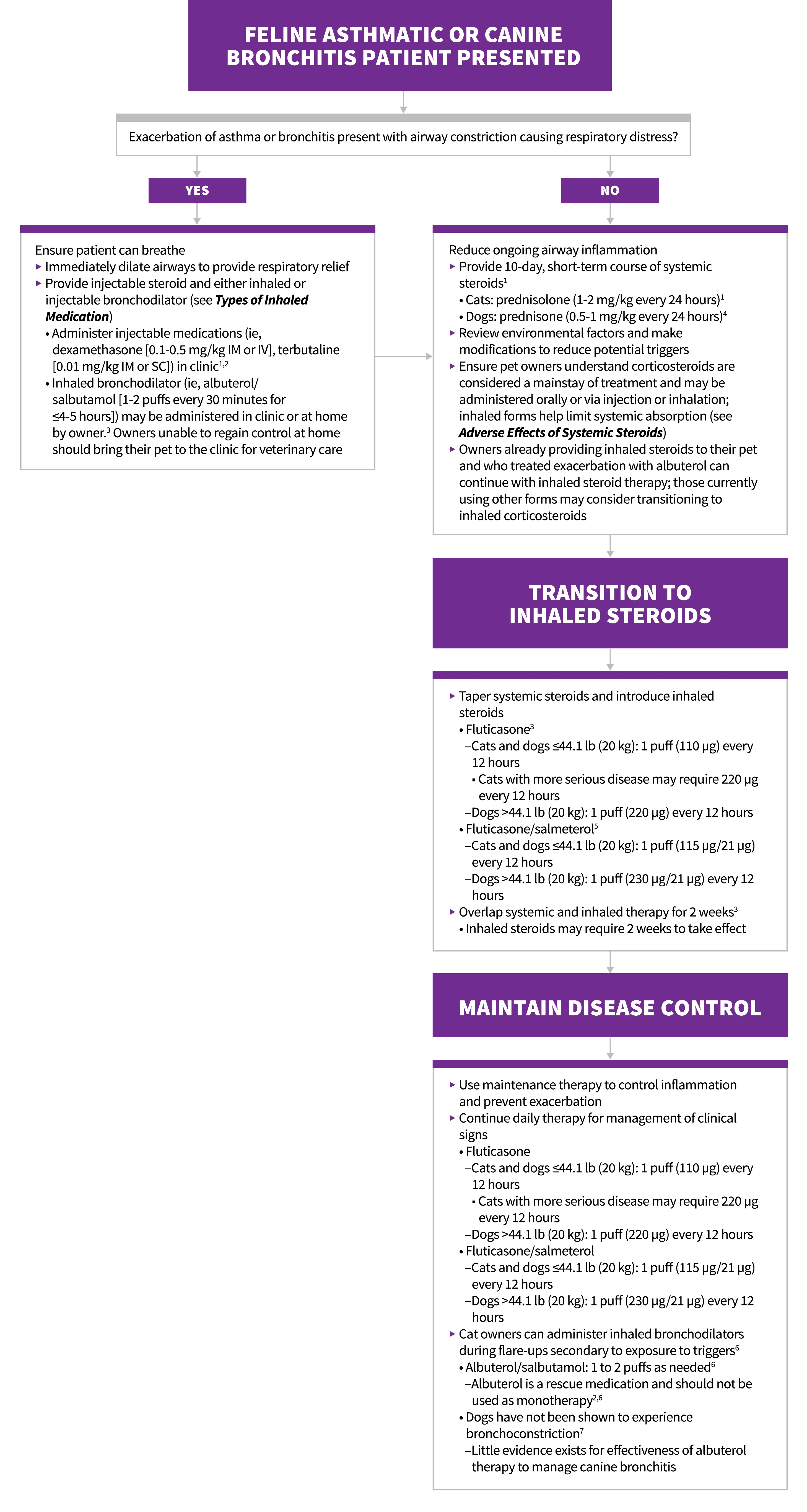Managing Feline Asthma & Canine Bronchitis
Sponsored by Trudell Medical

TYPES OF INHALED MEDICATION
Corticosteroids (eg, fluticasone, mometasone, budesonide)
Reduce airway inflammation and mucus production
Used for ongoing management of conditions even in absence of clinical signs
Bronchodilators
Open airways by relaxing smooth muscles to reduce bronchoconstriction
Not to be used as monotherapy
Available in short-acting and long-acting formulations1
Short-acting formulations (eg, albuterol, salbutamol)
4- to 6-hour duration
Are considered rescue medications; may help coughing flare-ups and limit need for clinic visits2
Albuterol is not to be used chronically, as it may result in worsening of airway inflammation; corticosteroids are the mainstay for long-term management and control
Long-acting formulations (eg, salmeterol)5
12-hour duration
Combination inhalers (eg, fluticasone/salmeterol, budesonide/formoterol, mometasone/formoterol)
Often a combination of inhaled corticosteroids and long-acting formulations
Reduce inflammation and relax smooth muscle
Indicated for disease management, not rescue5
May be used as a step-up therapy
ADVERSE EFFECTS OF SYSTEMIC STEROIDS1-4,8-11
Behavioral changes, including aggression
Lethargy
Increased thirst and urinary incontinence
Increased risk for infection (eg, UTI)
Diabetes mellitus
Weight gain/obesity
Vomiting/diarrhea
Iatrogenic hyperadrenocorticism
Immunosuppression
